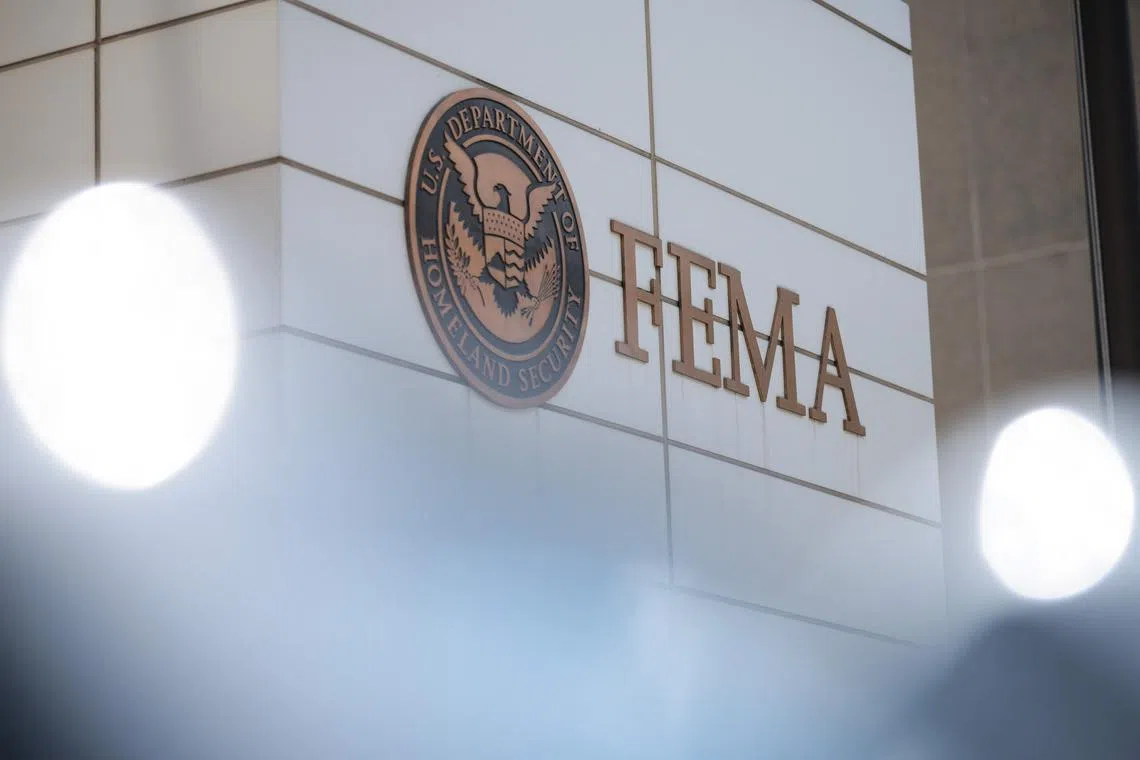US reverses pledge to link disaster funds to Israel boycott stance
Sign up now: Get ST's newsletters delivered to your inbox

The Federal Emergency Management Agency posted on Aug 1 saying states must follow its “terms and conditions” to qualify for disaster preparation funding.
PHOTO: AFP
Follow topic:
WASHINGTON - The Trump administration on Aug 4 reversed course on requiring US cities and states to rebuke boycotts of Israeli companies in order to receive disaster funds
The Department of Homeland Security removed its statement that said states must certify they will not sever “commercial relations specifically with Israeli companies” to qualify for the funding.
Reuters reported on Aug 4 that the language applied to at least US$1.9 billion (S$2.45 billion) that states rely on to cover search-and-rescue equipment, emergency manager salaries and backup power systems, among other expenses, according to 11 agency grant notices reviewed by Reuters.
This is a shift for the administration of President Donald Trump, which has previously tried to penalise institutions that do not align with its views on Israel or antisemitism.
The disaster funding requirement took aim at the Boycott, Divestment, and Sanctions movement designed to put economic pressure on Israel to end its occupation of Palestinian territories. The campaign’s supporters grew more vocal in 2023, after Hamas attacked southern Israel and Israel invaded Gaza in response.
“Fema grants remain governed by existing law and policy and not political litmus tests,” said DHS spokeswoman Tricia McLaughlin in a statement on the afternoon of Aug 4.
DHS oversees the Federal Emergency Management Agency (Fema).
Those conditions required that they not support what the agency called a “discriminatory prohibited boycott”, a term defined as refusing to deal with “companies doing business in or with Israel”. The new terms, posted later on Aug 4, do not include that language. REUTERS

